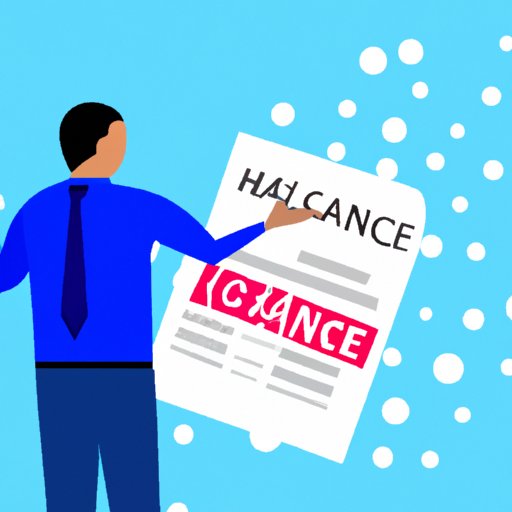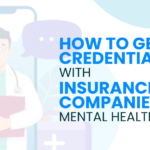Acceptable Reasons and Steps to Cancel Health Insurance: What You Need to Know

Understanding Acceptable Reasons to Cancel Health Insurance
Health insurance is a crucial component of financial well-being, but circumstances may arise where canceling a policy becomes necessary or even required. Understanding what constitutes an acceptable reason to cancel health insurance is vital for making informed decisions, protecting your rights, and accessing alternative coverage when needed. Below, we provide a comprehensive guide to the most common, legitimate reasons for health insurance cancellation, the steps to take, and the options available after cancellation.

Source: healthcareinsider.com
Voluntary Cancellation: When You Choose to End Your Policy
Individuals often voluntarily cancel their health insurance policies for several reasons. The most frequent scenarios include:
- Obtaining New Coverage Through Employment : If you start a new job that offers employer-sponsored health insurance, you may wish to cancel your individual plan to avoid duplicate coverage and unnecessary costs. In such cases, you can generally cancel your old policy outside of the annual open enrollment period by providing proof of new coverage. Employers typically coordinate the transition, but it is important to confirm with both your new and former insurers to ensure there is no gap in coverage [1] .
- Turning 65 and Transitioning to Medicare : Upon reaching Medicare eligibility, you might cancel an existing individual or employer health plan. This transition is a qualifying event that allows you to end your previous coverage without penalty. To avoid overlap or gaps, coordinate your cancellation with your Medicare enrollment date [1] .
- Changes in Financial Situation : If you can no longer afford your current policy, you may review your options during open enrollment or a Special Enrollment Period (SEP). This allows you to seek out lower-cost plans or apply for government programs like Medicaid if eligible. Before canceling, carefully review available options to avoid being uninsured [1] .
In every case, the best practice is to notify your insurer in writing and confirm when your coverage will officially end. Be sure to request documentation verifying the cancellation.
Involuntary Cancellation: When Your Insurer Ends Coverage
Health insurance companies cannot cancel your policy without a valid, legally justified reason. The main acceptable reasons for involuntary cancellation include:
- Non-Payment of Premiums : If you fall behind on your premium payments, your insurer has the right to cancel your policy. Federal law requires insurers to give you at least 30 days’ notice before canceling due to missed payments, allowing you to pay the outstanding amount or appeal the decision [1] [4] .
- Fraud or Intentional Misrepresentation : If you deliberately provide false or incomplete information on your insurance application, your insurer may cancel your coverage. However, under the Affordable Care Act, honest mistakes or minor errors that do not affect your health risk cannot be used as grounds for cancellation [4] [3] .
- Plan No Longer Offered or Regulatory Changes : An insurer may discontinue a particular plan, often due to regulatory requirements or changes in the law. If your plan is canceled for this reason, you are generally entitled to a Special Enrollment Period to find new coverage [3] .
Insurers are required to deliver written notice detailing the reason for cancellation and the exact date your coverage will end. This notice grants you time to appeal or secure new insurance.
Legal and Court-Ordered Requirements
Sometimes, legal obligations may prevent you from canceling your health insurance policy, or may require you to maintain coverage:
- Child Support and Divorce Proceedings : Courts may order you to maintain health insurance for dependents as part of child support or divorce agreements. Canceling coverage in violation of such orders can result in legal consequences. If your circumstances change, consult the court before making any changes to your insurance status [2] .
- Medicare and Private Coverage Coordination : If you switch from Medicare to a private plan, official procedures must be followed, and you may be required to notify the Health Care Financing Administration to avoid gaps or penalties [2] .
Always consult legal counsel or your caseworker if you are uncertain about your obligations under court orders or public programs.
Special Circumstances and Government Program Cancellations
Medicaid and Children’s Health Insurance Program (CHIP) coverage may end if you no longer meet eligibility criteria, such as:
- Income Increases : If your household income rises above program limits, your state will notify you of loss of eligibility. This triggers a Special Enrollment Period, usually 60 days, to enroll in a new Marketplace plan [2] .
- Aging Out of CHIP : Children turning 19 lose CHIP eligibility and must seek alternative coverage, such as a private or Marketplace plan. Contact your state Medicaid or CHIP office for guidance on the transition process [2] .
The process for canceling Medicaid or CHIP varies by state. Begin by contacting your assigned caseworker or the appropriate state agency to understand the correct procedures and deadlines.
How to Cancel Your Health Insurance: Step-by-Step Guidance
The process for canceling health insurance depends on your policy type, your reason for cancellation, and your insurer’s rules. Here is a step-by-step guide:
- Review Your Policy and Reason for Cancellation : Carefully read your policy’s terms to ensure you are eligible to cancel and to understand any repercussions, such as loss of coverage or possible penalties.
- Contact Your Insurer or Program Administrator : Notify your insurance company or program administrator in writing. Request confirmation of the cancellation, the effective date, and any final billing information. For employer plans, coordinate with your HR department.
- Document All Communications : Keep copies of all correspondence and notes from phone calls. This documentation will be valuable if you encounter any disputes or need to appeal a decision.
- Secure Alternative Coverage : Before canceling, explore new insurance options through your employer, the Health Insurance Marketplace, Medicaid, or private insurers. If you lose coverage outside of open enrollment, determine if you qualify for a Special Enrollment Period. You can visit the official Health Insurance Marketplace by searching for “Healthcare.gov” or calling 1-800-318-2596 for assistance [3] .
- Appeal if Necessary : If you believe your policy was canceled unfairly, you have the right to file an appeal. Insurers must provide instructions for both internal and external appeals. External appeals often involve a neutral third party and must be filed within specific deadlines-commonly within four months of cancellation [5] .
It is critical to avoid gaps in health coverage. Even a short lapse can result in denied claims or lapses in care. If you are unsure, consult with a professional, such as a licensed insurance broker, a patient advocacy organization, or your state’s consumer protection agency.
Examples of Acceptable Cancellation Scenarios
Consider these common real-world cases:
- Jane starts a new job that offers health benefits. She cancels her Marketplace plan to enroll in her employer’s group health plan, ensuring continuous coverage.
- Sam turns 65 and becomes eligible for Medicare. He cancels his individual market plan the same month his Medicare coverage starts.
- Maria’s income increases beyond Medicaid limits. The state notifies her of loss of eligibility, and she applies for a subsidized Marketplace plan within the 60-day window.
- David cannot afford premiums after job loss. He reviews options during Special Enrollment and selects a more affordable plan or applies for Medicaid if eligible.
- Kyle is ordered by a court to maintain health insurance for his child post-divorce and cannot cancel coverage until the court order is changed.
Potential Challenges and How to Address Them
Canceling health insurance can bring challenges such as:

Source: myhealthinsurance.com
- Risk of Coverage Gaps : Always line up new insurance before canceling your current policy.
- Legal Complications : For court-ordered insurance or public programs, consult with a legal advisor or your caseworker before making changes.
- Appealing Denials : If you believe your coverage was wrongly canceled, begin the appeal process immediately and gather supporting documentation.
- Understanding State Variations : Medicaid and CHIP rules differ by state. Contact your state’s health department or Medicaid office for precise instructions.
Alternative Approaches and Next Steps
If you are unhappy with your current plan or facing cancellation, you have options:
- Seek coverage through a spouse’s employer plan if available.
- Apply for COBRA continuation if you lose employer coverage; COBRA allows you to maintain your group coverage for a limited period (usually 18-36 months), though you must pay the entire premium [3] .
- Research short-term health plans for temporary needs, but be aware they may offer limited benefits and are not considered minimum essential coverage.
To explore your options and ensure a smooth transition, you can use the official Health Insurance Marketplace or speak with a certified insurance broker. If you need to cancel Medicaid or CHIP, contact your state’s Medicaid department directly.
Key Takeaways
Canceling health insurance is a significant decision, and only certain reasons are considered acceptable-such as securing new coverage, becoming eligible for Medicare, financial hardship, legal requirements, or loss of eligibility for public programs. Always follow the correct procedures, keep documentation, and secure new coverage before canceling. If your policy is canceled by your insurer, request a written explanation and consider your appeal rights. For further guidance and to avoid mistakes, consult with official agencies or legal professionals as needed.
References
- [1] PeopleKeep (2024). How To Cancel Your Health Insurance Policy.
- [2] Healthcare Insider (2024). How to Cancel Your Health Insurance.
- [3] Patient Advocate Foundation (2025). Health Plan Cancellations and What To Do Next.
- [4] Healthcare.gov (n.d.). Cracking Down on Frivolous Cancellations.
- [5] Doug Terry Law (2024). Fighting Your Health Insurance Cancellation.






